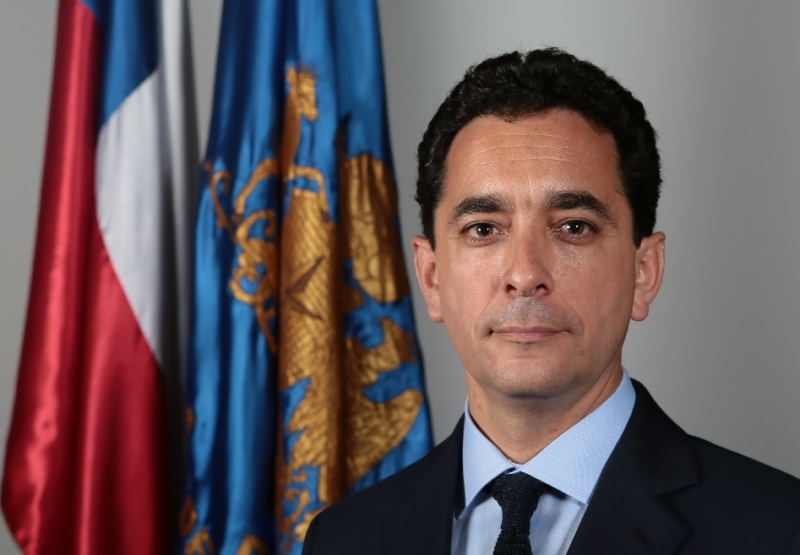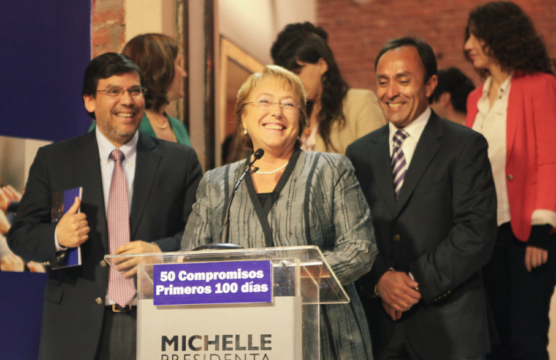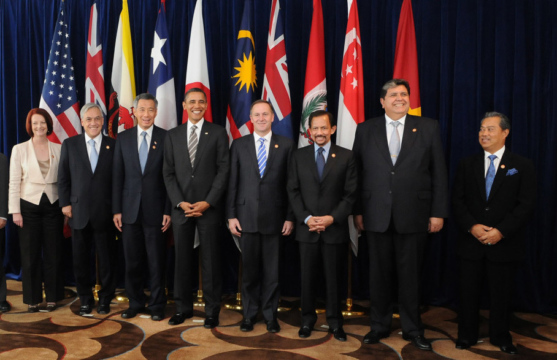Is the Transpacific Trade Partnership Initiative on Track?
Is the TPP on track to complete a framework in 2012, as planned?
Chile is at an important moment politically. The Bachelet government has pushed for an ambitious reform agenda, in the midst of several corruption scandals and a slowing economy. Over 20 years after democratization, the government now faces of transition towards modernization and electoral transparency. President Michelle Bachelet recently signed a new electoral law that replaced the old binomial system with a more proportional one. At the same time, the current government has introduced broader political reforms in aspect such as campaign finance and lobbying, in order to modernize political parties and promote transparency.
In order to address this important moment in Chilean politics, the Inter-American Dialogue convened a roundtable with Marco Antonio Nuñez, speaker of the lower house of the Congress of Chile, the Chamber of Deputies. Kevin Casas-Zamora, director of the Peter D. Bell Rule of Law program, moderated the round table.
In his opening remarks, Nuñez stated that an era of political change is taking part in Chile, with President’s Bachelet profound reforms in numerous subjects. This change, as explained by Nuñez, began with the pressure of the middle class for transparency and the loss of confidence in the government’s actions. Within the pressure of the middle class, which Nuñez embraces as a positive move, a new consensus has been reached for a new constitution under democracy. The Speaker considered this a key aspect in the current political context in Chile, even as the push for a new constitution has been contentious. The governing political parties are set on reforming the constitution, although the primary opposition concern is that this new process will obliterate the constitutional stability of the last 20 years.
Through all of this, though, Nuñez is optimistic that the proposed changes will happen and will be positive. To him, they are are a foundation for improving democracy and the renewing confidence and legitimacy for the Chilean government. The target of the “transparency agenda” as called by Nuñez is to prepare existing institutions for new electoral conditions while guaranteeing controls on illegal financing.
Following the Speaker’s remarks, Kevin Casas-Zamora opened the discussion by touching on the topic of consensus. Taking the view of an outsider to the political process in Chile, Casas-Zamora asked if there was a risk of the Bachelet government breaking the political consensus between left and right that had so long been a stabilizing force for the country. Nuñez suggested that consensus still existed, but there was a deep need for political change. With the decrease in political legitimacy, Chile is in desperate need of changes without renouncing to the basic pillars of democracy to revitalize that very consensus.
“Realismo sin renuncia” or “realism without resigning” as stated by Nuñez is the government’s basis for the current reforms. Realism in the sense that they acknowledge a slowing economy without being resigned to reforms only to the political sector.
In the course of the discussion, he explained some of the major reforms that have enacted by Chile. A first example was the educational reform introduced to end profits at state-subsidized schools and eliminate selective entrance policies. When asked about the sustainability of the reform, Nuñez stated that the main promise of the government was to introduce free higher education. However, the Speaker did not deny that education is expensive which is why special provisions for public expenditures have been allocated for January 2016.
In addressing the new labor and pension reform that aims at strengthening the union while reducing strikes, Nuñez pointed out its relationship between the health reform that granted free access and protection of benefits for health provision. This reform created better conditions for private insurance to be successful, hoping to lead to a decrease in labor strikes on the sector. The government’s intention, in Nuñez words, is not to introduce revolutionary laws, but rather pieces of legislation that regulate strikes and incentives to unionize.
The Speaker acknowledged the existence of corruption in the country, which motivated Congress to pass legislation on lobbying disclosure. Nuñez explained that this legislation allows openness in official communications and the release of information by professional lobbyists in the country. Over a year after passing this important legislation, Nuñez called attention to the need to evaluate its impacts and the next steps.
Furthermore, Nuñez was asked about Chile’s foreign policy, particularly its relations with the United States of America and its role in the TPP negotiations. On the first subject, following a question from the audience that pointed at the “Yankees” relations with Chile, the Speaker was skeptical about the current stage of the relations with the United States with concern. Political elites in Latin America are currently watching the republican race for the Presidency. These debates have been marked, as stated by Nuñez, for a kind of language that points a “return to the old days of the Cold War.” Nuñez confirmed that the United States’ relation with Latin America is an issue, but it is important to note the special steps that the Obama administration has taken with some Latin American countries. On the other hand, Chile is moving forward on the TPP negotiations but has encountered obstacles on negotiations of patents about biological pharmaceutical products. Nonetheless, he is confident that the disputes can be resolved.
Is the TPP on track to complete a framework in 2012, as planned?
Who will give Bachelet her toughest competition in the race? What issues are driving the campaign?
During this decade, and with particular intensity in recent months, several far-reaching trade negotiations have been in the works worldwide.


